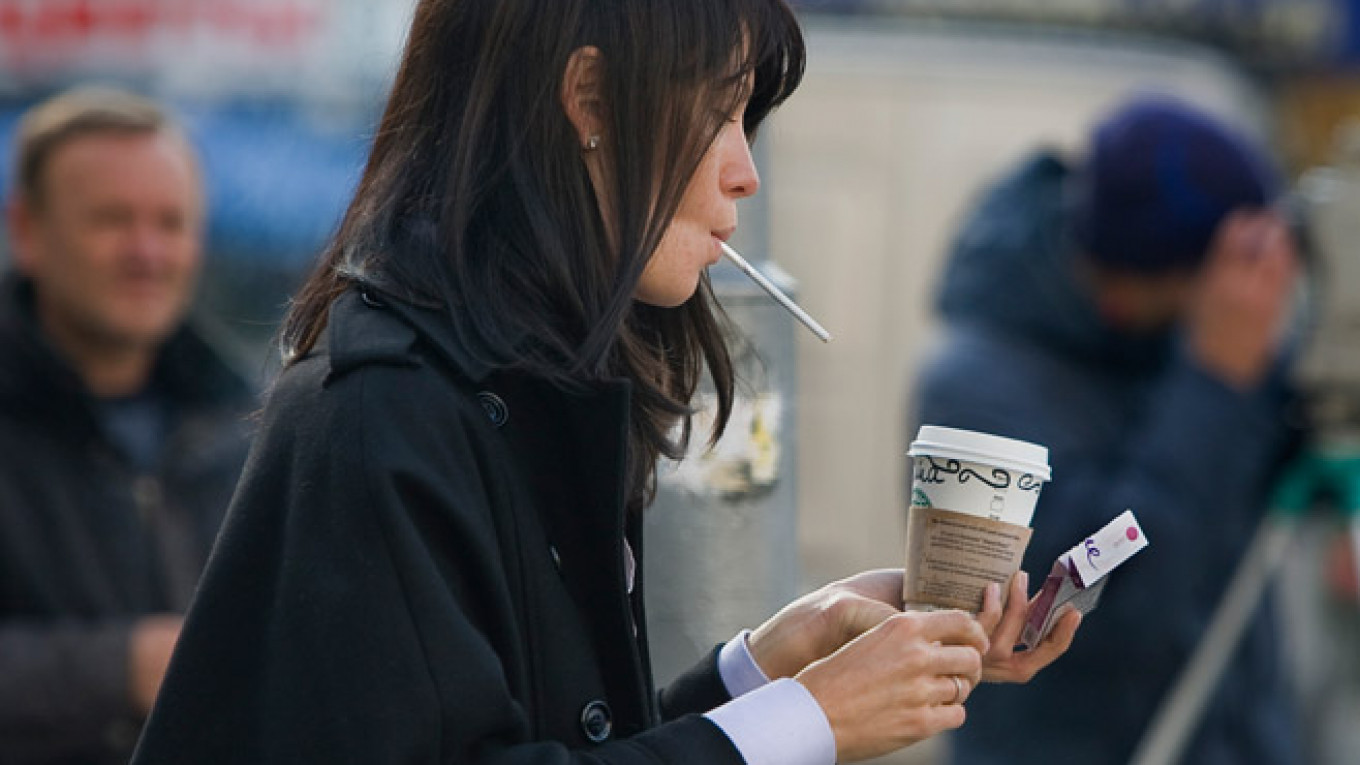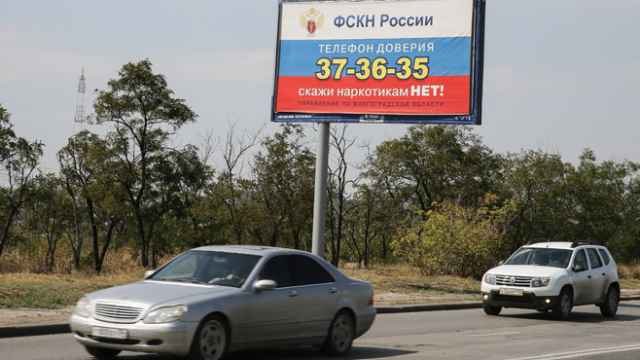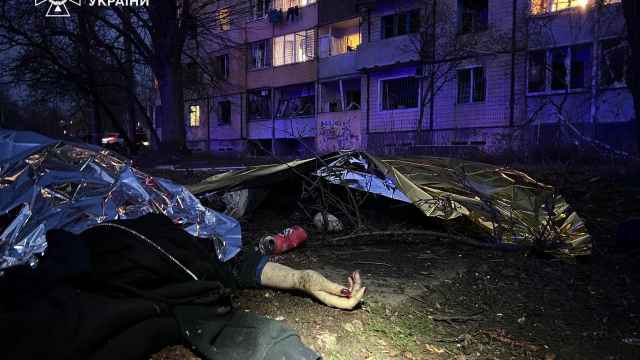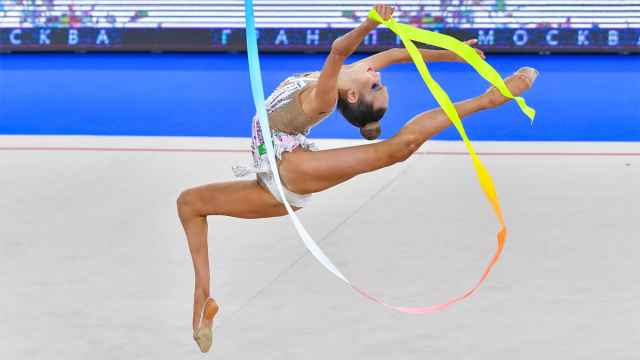The number of smokers in Russia has fallen by about 17 percent since the adoption of anti-smoking legislation in 2013, news agency Interfax reported Monday, citing the Health Ministry.
In February 2013, President Vladimir Putin signed legislation that banned smoking in public places, required graphic warning labels on cigarette packs and prohibited advertising for tobacco products.
The legislation has been in force since June 2013, but some of its provisions — including a ban on smoking in restaurants, hotels and trains — came into effect last summer.
"The level of compliance with the [smoking] bans remains high, exceeding 90 percent," Health Ministry spokesman Oleg Salagai said in comments carried by Interfax.
He added that smoking scenes in the country's most popular television series have become a much rarer occurrence, compared with 2011.
Russia's implementation of anti-smoking legislation is part of its obligations under the World Health Organization's 2008 Framework Convention on Tobacco Control.
The organization said in February 2014 that 39 percent of Russia's adult population are regular tobacco users.
The Russian government announced in 2013 that it hoped to reduce the share of smokers to 25 percent of the adult population by 2020.
A Message from The Moscow Times:
Dear readers,
We are facing unprecedented challenges. Russia's Prosecutor General's Office has designated The Moscow Times as an "undesirable" organization, criminalizing our work and putting our staff at risk of prosecution. This follows our earlier unjust labeling as a "foreign agent."
These actions are direct attempts to silence independent journalism in Russia. The authorities claim our work "discredits the decisions of the Russian leadership." We see things differently: we strive to provide accurate, unbiased reporting on Russia.
We, the journalists of The Moscow Times, refuse to be silenced. But to continue our work, we need your help.
Your support, no matter how small, makes a world of difference. If you can, please support us monthly starting from just $2. It's quick to set up, and every contribution makes a significant impact.
By supporting The Moscow Times, you're defending open, independent journalism in the face of repression. Thank you for standing with us.
Remind me later.






